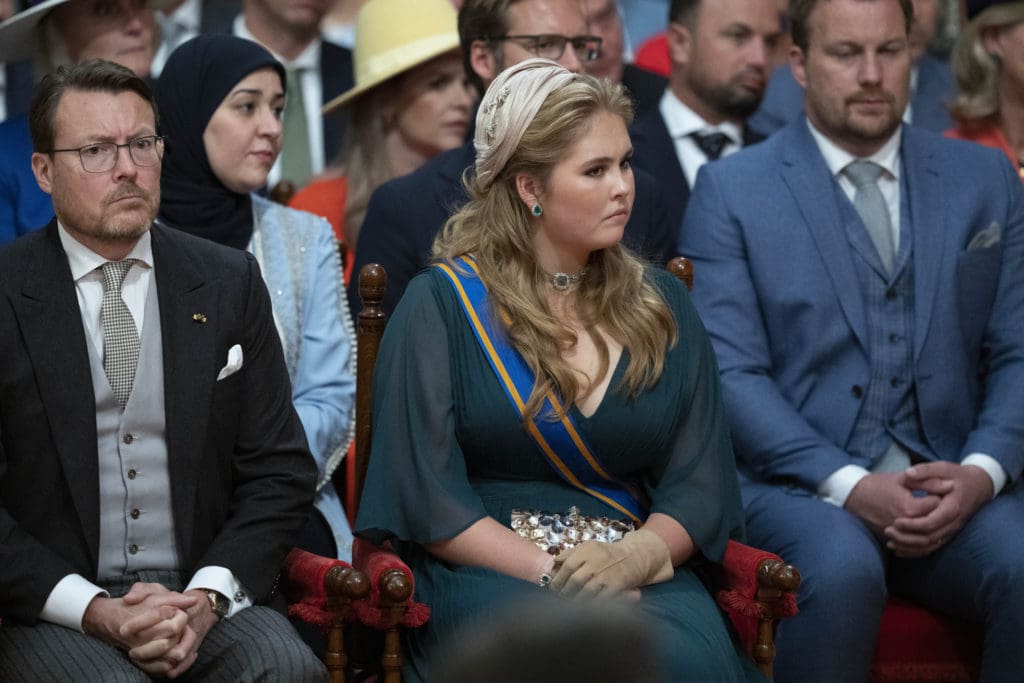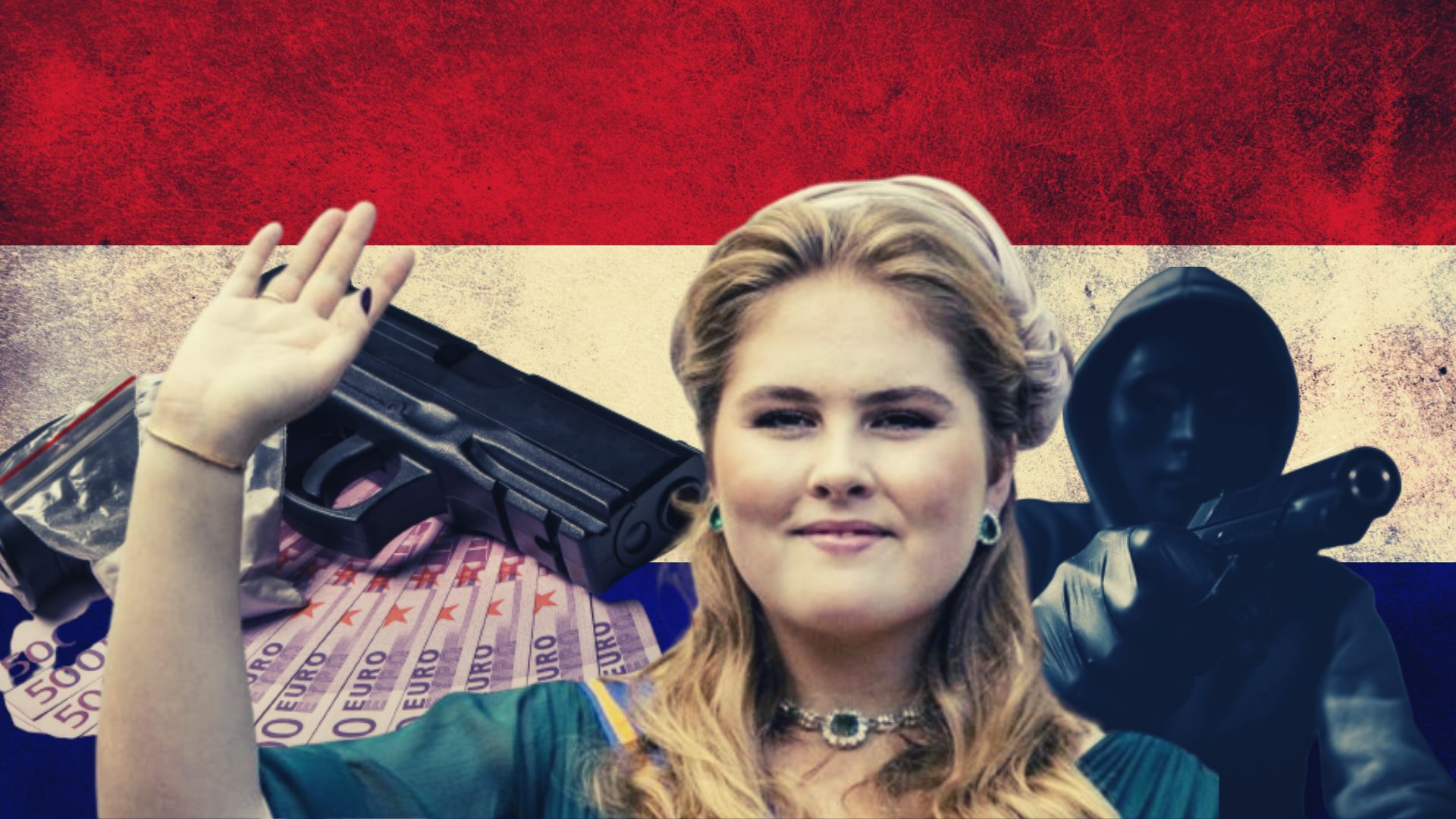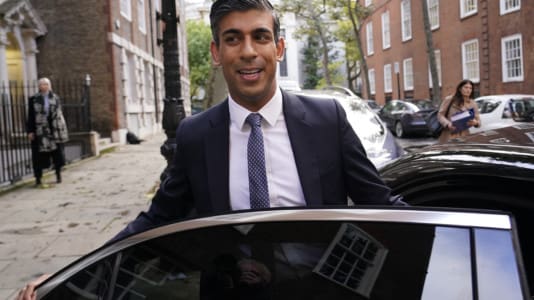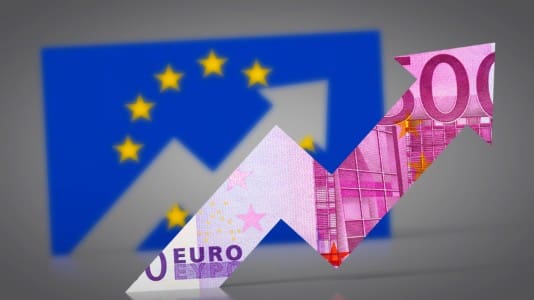The fact that 18-year-old Dutch Princess Amalia fled to the royal palace over kidnapping threats from the Moroccan Mafia has made national headlines and sparked a conversation about the country’s powerful organized crime groups. However, lurking within the debate are the same factors — insecurity, mass migration, and multiculturalism— that have driven the rise in popularity of the anti-immigrant parties across once-safe European countries.
Amalia is not the only high-profile victim of organized crime groups mostly made up of foreigners. Even the country’s prime minister, Mark Rutte, known for his boiling hatred towards Hungary’s Viktor Orbán, has been threatened by the same gangs. These migrant gangs have grown so powerful that they have assassinated top journalists like Peter R. de Vries, along with witnesses and even a lawyer. Various threats have also left a range of judges and politicians under constant police protection.
Now, the same Moroccan Mafia, known as the Mocro Maffia in the Netherlands, has turned their sights on the country’s royalty, with 18-year-old Dutch Princess Amalia forced to flee Amsterdam to The Hague royal palace due to kidnapping threats. Much like narco states like Mexico, the various gangs that make up the Moroccan Mafia use vicious tactics to silence their enemies and rivals, and have often employed kidnappings in the past. With the drug trade resulting in up to €30 billion a year in revenue, the money is reportedly corrupting every layer of Dutch society.
King Willem-Alexander and his wife, Queen Consort Maxima, did not divulge any details regarding the threat to Amalia, but Maxima said being forced to move back into the palace has “enormous consequences” for her daughter. France’s Le Monde wrote that it “comes as a shock in a country where public figures often move around with little protection.”

Despite Amalia’s status as the future queen, she is not safe enough to attend university in her own country. It was just on Sept. 5 when she enrolled in the University of Amsterdam to study political science and psychology, settling into an apartment off-campus with some friends along the canal. However, despite her attempts at “normality,” security services became aware of a threat serious enough that she was forced to hide out in Huis ten Bosch Palace. She has since started attending university again but only under heavy escort from security professionals and police.
Questioned about the kidnapping threat to the Dutch crown princess, Prime Minister Mark Rutte, who was also subject to threats from organized crime in the fall of 2021, spoke of “terrible news, very violent, bad for our country.” Rutte himself has beefed up his protection with security details due to possible threats of kidnapping and assassination. Recently, the same Moroccan Mafia threatened to kidnap Belgian Minister of Justice Vincent Van Quickenborne, who was evacuated to a safe house where he spent several days with his family.

Despite the long string of assassination and kidnapping threats, very few Dutch politicians are willing to discuss the relationship between these threats with mass migration, with Geert Wilder, leader of the Party for Freedom, one of the notable exceptions.
“The threat of Islam, Mocro-Mafia and radical Muslims is getting bigger and bigger. I’ve known what that means for 18 years. Now the prime minister and even Princess Amalia are threatened. Hopefully, politicians will wake up now and see the existential danger of Islamic ideology,” Wilders wrote on Twitter. Wilders should know something on the topic, as he remains under protection from a special military unit of the police 24/7 since 2004 due to his views on immigration and Islam.
Other politicians shied away from discussing the rule of immigration and crime in the Netherlands, while still condemning the threats to Amalia’s life.
“It is totally contrary to what we want for this country,” said Jan Paternotte, leader of the parliamentary group of the government party, Les Démocrates 66 (D66). “What is beautiful in the Netherlands is that the prime minister can cycle to work, and the royal family is in society. If we want to keep that country, we have a lot of work to do.”
What Paternotte did not mention is that his D66 party is well known for promoting mass immigration and legalization of drugs, both factors critics argue have led to the explosion in gangs and organized crime. For many Dutch citizens, there are no security details they can rely on.
[pp id=34275]
Some may argue that the problems that Islam presents in European society, and the high rates of criminality from migrants hailing from North African societies, are for the most part two separate issues. Even if the members of the Moroccan Mafia consider themselves Muslims, in the end, the mafia is a criminal organization and not a Muslim or jihadist one.
Nevertheless, the question remains: What is the Netherlands really gaining from mass migration, particularly from problematic countries like Morocco? Across Europe, migrants from Morocco and other North African countries are associated with high rates of criminality, clan structures, high unemployment, and cultural attitudes that sharply contrast with European society. For example, in 2015, a report from the Dutch government found that individuals with a Moroccan background were almost six times as likely to be suspects in a crime compared to native Dutch citizens.
The more multiculturalism fails to work, and the more politicians have to go into hiding to save their own skins, the more they appear to double down on the need for more mass immigration. What explains this contradiction? An adherence to progressive ideology? A thirst for power? Fear of speaking out against the dominant orthodoxy or being called racist? There is perhaps even a certain element of some ego boost gained and the idea that they are living out some kind of adventure without any real risks due to the large security details available to these personalities. The Moroccan Mafia was the focus of a wildly popular television series, and in many ways, made the gangs alluring to some elements of White, liberal Dutch society.
[pp id=51086]
However, there is no doubt a certain level of worry associated with the rising power of organized crime in the Netherlands. Many societies around the world feature a wealthy elite that live in gated compounds and travel with security details, which is commonplace in South America, North Africa, the Middle East, and many parts of Asia. However, Western society, with the Netherlands a special example, usually features a remarkably open public life, even for politicians and celebrities. The Dutch certainly do not want to lose that, but they seem incapable, along with much of the West, of honestly addressing the root causes of the societal ills they face.
For the most part, the Netherlands remains a far safer society than many other European countries, in part due to the tremendous social benefit system employed by the Dutch state, even if that same type of model has offered little help to the north in Sweden.
Nevertheless, the threat of organized crime is growing tremendously, with the Dutch ports of Rotterdam and Antwerp serving as the main hubs for cocaine distribution throughout Northern Europe. In fact, the Netherlands is already being described as a “narco state 2.0” by the Guardian, a paper that has long championed the type of mass migration that has fueled the organized crime rings driving the Netherlands’ thriving drug trade.
[pp id=23989]
At the same time, the Netherlands is experiencing record immigration, which has led to continued population growth in the already densely populated nation. With inflation jumping to 17.1 percent, the country’s normally stable system may feature continued shocks going forward.
Despite claims that “diversity is strength,” there is little appetite to make such claims in relation to the numerous criminal syndicates that operate in the Netherlands, nearly all of them from a kaleidoscope of foreign countries. Moroccan migrants may be overrepresented, but there are also South American gangs, other Middle Eastern operators, and gangs from European countries like Kosovo.
The Dutch themselves wee never part of any organized criminal networks, and even if there were a few scattered motorcyle gangs, these groups never rose to any level of power or represented a threat to the intergrity of the state itself. The same holds true for neigboring Germany, the Dutch half of Belgium, along with most of Northern Europe, including the Scandinvian countries. Yet, all of these countries are now plagued by migrants clans, organized crime groups, and other threats to public safety.
Open-borders migration has brought ethnic restaurants, cheap labor, and a boom in crime dramas people enjoy on Netflix, but such benefits wither in the face of the costs for societies that were once socially cohesive, prosperous, and remarkably free from the type of organized crime wave dominating the Netherlands.






